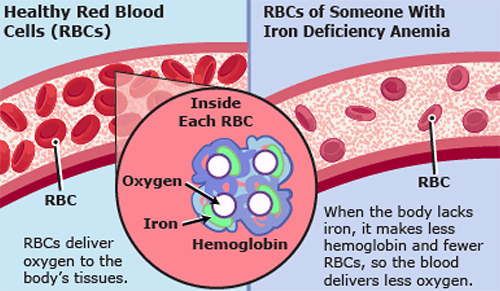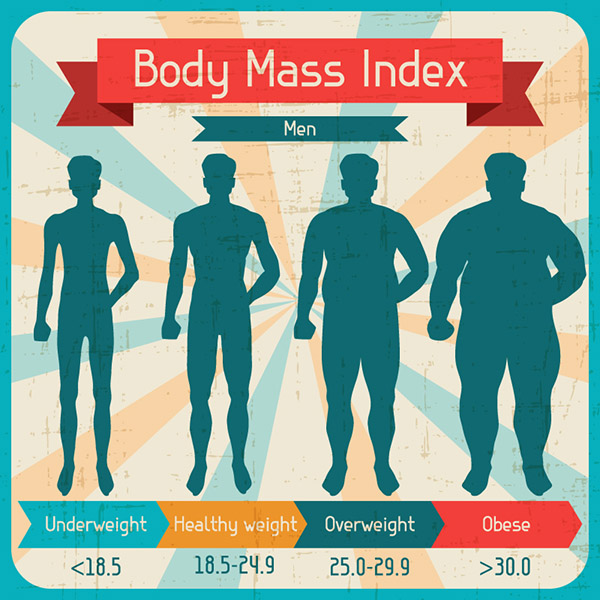The stigma surrounding depression and other mental illnesses has caused many patients, especially men, to feel ashamed and hide their struggle, because they view it as a weakness. The first step to recovery is to understand there’s no reason to feel ashamed. Then you can face the challenge head on and start working to feel better.
Understanding depression in men
Depression is not a sign of emotional weakness or failing of masculinity. It is a treatable health condition that affects millions of men of all ages and backgrounds, as well as those who care about them—spouses, partners, friends, and family.
Unfortunately, depression in men can often be overlooked as many of us find it difficult to talk about our feelings. Instead, we tend to focus on the physical symptoms that often accompany depression, such as back pain, headaches, difficulty sleeping, or sexual problems. In South Africa, it is estimated that 70% of sufferers remain undiagnosed, untreated and unsupported. This can have fatal consequences, as they do not receive the healthcare they need. In fact, men suffering from depression are four times more likely to commit suicide than women.
It’s important for any man to seek help with depression before feelings of despair become feelings of suicide. You need to talk honestly with a friend, loved one, or doctor about what’s going on in your mind as well as your body. Once correctly diagnosed, there is plenty you can do to successfully treat and manage depression.
Signs and symptoms of depression in men
Men can experience depression in different ways to women. Unfortunately, men are far less adept at recognizing their symptoms than women. A man is more likely to deny his feelings, hide them from himself and others, or try to mask them with other behaviours.
The most common signs of depression in men are:
- Physical pain. Sometimes depression in men shows up as physical symptoms—such as backache, frequent headaches, sleep problems, sexual dysfunction, or digestive disorders—that don’t respond to normal treatment.
- Anger. This could range from irritability, sensitivity to criticism, or a loss of your sense of humour to road rage, a short temper, or even violence. Some men become abusive, controlling, verbally or physically abusive to wives, children, or other loved ones.
- Reckless behaviour. A man suffering from depression may start exhibiting escapist or risky behaviour. This could mean pursuing dangerous sports, driving recklessly, or engaging in unsafe sex. You might drink too much, abuse drugs, or gamble compulsively.
- Fatigue. Men who are depressed undergo a series of physical and emotional changes. They can experience fatigue, as well as psychomotor retardation, or a slowing down of physical movements, speech, and thought processes.
- Difficulty concentrating. Psychomotor retardation can slow down a man's ability to process information, thereby impairing concentration on work or other tasks.
- Stress. Men might be more likely to report symptoms of depression as stress. It's not that they have more stress; it's that it's more socially acceptable to report it.
- Substance abuse. Substance abuse frequently accompanies depression. Research has shown that alcoholics are almost twice as likely to suffer from major depression as people without a drinking problem.
- Indecision. Some people naturally have a hard time making decisions, so an inability to make choices is usually worrisome only if it's a new behaviour. Depression slows down your ability to decide what to do and when.
- Anxiety. Research has shown a strong link between anxiety disorders and depression. Men may be no more likely than women to experience anxiety—in fact, anxiety disorders are about twice as prevalent in women—but it's often easier for men to talk about feeling anxious rather than sad.
- Sexual dysfunction. Depression is a common reason for loss of desire and erectile dysfunction (ED), and it's one symptom that men are inclined not to report. Performance problems can not only come from depression, but it can make depression worse.
Triggers for depression in men
There’s no single cause of depression in men. Biological, psychological, and social factors all play a part, as do lifestyle choices, relationships, and coping skills. Stressful life events or anything that makes you feel useless, helpless, alone, profoundly sad, or overwhelmed by stress can also trigger depression in men. These could include:
- Overwhelming stress at work, school, or home
- Marital or relationship problems
- Not reaching important goals
- Losing or changing a job; embarking on military service
- Constant financial problems
- Health problems such as chronic illness, injury, disability
- Recently quitting smoking
- Death of a loved one
- Family responsibilities such as caring for children, spouse, or aging parents
- Retirement; loss of independence
- Genes. Men with a family history of depression may be more likely to develop it than those whose family members do not have the illness
- Impotence or erectile dysfunction. It is not only a cause of depression in men, it can also be a side effect of many antidepressant medications
Treating depression in men
Don't try to tough out depression on your own. It takes courage to seek help, but most men with depression respond well to treatments such as lifestyle changes, social support, therapy, or medication—or a combination of treatments. The first step is to talk to your doctor. Be open about how you’re feeling as well as the physical symptoms you’re experiencing so your mental health specialist can make an accurate diagnosis.
- Therapy. You may feel that talking to a stranger about your problems is ‘unmanly,’ or that therapy carries with it a victim status. However, if therapy is available to you, it can be an extremely effective treatment for depression in men. Opening up to a therapist can often bring a swift sense of relief, even to the most sceptical male. If therapy isn’t available to you, open up to a friend, family member, or work colleague. The simple act of talking to someone face to face can be an enormous help.
- Medication. Antidepressant medication may help relieve some symptoms of depression, but doesn’t cure the underlying problem, and is rarely a long-term solution.
Lifestyle changes to treat depression in men
Lifestyle changes are extremely effective tools at treating depression in men. Even if you need other treatments as well, lifestyle changes can help lift depression and keep it from coming back.
- Exercise regularly. Regular exercise is a powerful way to fight depression in men. Not only does it boost serotonin, endorphins, and other feel-good brain chemicals, it triggers the growth of new brain cells and connections, just as antidepressants do. It also boosts self-esteem and helps to improve sleep. For maximum results, aim for 30 to 60 minutes of activity on most days.
- Eat well. Eating small, well-balanced meals throughout the day will help you keep your energy up and minimize mood swings. Choose complex carbohydrates instead of sugary foods, they'll get you going without the sugar crash. Deficiencies in B vitamins can trigger depression so take a B-complex vitamin supplement or eat more citrus fruit, leafy greens, beans, chicken, and eggs. Foods rich in certain omega-3 fats—such as salmon, walnuts, soybeans, and flaxseeds—can also give your mood a boost.
- Get enough sleep. When you don't get enough sleep, your depression symptoms can be worse. Sleep deprivation intensifies anger, irritability, and moodiness. Aim for somewhere between 7 to 9 hours of sleep each night.
- Reduce stress. Make changes in your life to help manage and reduce stress. Set realistic goals and break them down into manageable tasks rather than burden yourself with huge objectives all at once. Figure out the things in your life that stress you out, such as work overload or unsupportive relationships, and make a plan to avoid them or minimize their impact.
Social support to treat depression in men
Strong social networks reduce isolation, which can trigger or intensify bouts of depression. For many men, especially when they’re suffering from depression, reaching out to others can seem overwhelming. Close relationships don’t happen overnight, but there are steps you can take to help you connect with others and build a solid support network.
- Let your family and friends help you. Close relationships are vital to helping you get through this tough time. Accepting help and support is not a sign of weakness and it won’t mean you’re a burden to others. In fact, most friends will be flattered that you trust them enough to confide in them, and it will only strengthen your bond.
- Participate in social activities, even if you don’t feel like it. When you’re depressed, it feels more comfortable to retreat into your shell. But being around other people will make you feel less depressed.
- Join a support group for depression. Being with others who are facing the same problems can help reduce your sense of isolation and remove the stigma you may feel. It can also be inspiring to share experiences.
- Volunteering can be a great way to help others while also expanding your social network.
- Meet new people with a common interest by taking a class, joining a club, or enrolling in a special interest group that meets on a regular basis.
- Call or email an old buddy. Even if you’ve retreated from relationships that were once important to you, make the effort to reconnect.
- Confide in a counsellor, coach, or clergy member.
Helping a male relative or loved one with depression
It often takes a wife, partner, or other family member to recognize a man’s symptoms of depression. Even if a man suspects he’s depressed, he may be ashamed that he’s unable to cope on his own and only seek help when pressured to do so by a loved one.
How to offer support to a man with depression
Supporting a man with depression requires understanding, patience, affection, and encouragement.
- Engage him in conversation and listen carefully. Do not disparage the feelings he expresses, but do point out realities and offer hope.
- Do not ignore remarks about suicide. Call The South African Depression and Anxiety Group helpline as soon as possible (their details are below the article).
- Invite him for walks, outings, to the movies, and other activities. Be gently insistent if your invitation is refused.
- Encourage participation in activities that once gave pleasure, such as hobbies, sports, or cultural activities, but do not push him to undertake too much too soon. He needs diversion and company, but too many demands can increase his feelings of failure.
- Do not accuse him of faking his feelings, or expect him 'to snap out of it. Instead, keep reassuring him that, with time and help, he will feel better.
- You may need to monitor whether he is taking prescribed medication or attending therapy sessions. Encourage him to follow orders about the use of alcohol if he’s prescribed antidepressants.
- Remember, you can’t "fix" someone else’s depression. You’re not to blame for your loved one’s depression or responsible for his happiness. Ultimately, recovery is in his hands.Adapted from: National Institute of Mental Health
If you are needing a referral to a psychologist, psychiatrist or support group, call The South African Depression and Anxiety Group (SADAG) on 011 234 4837 or 0800 20 50 26 and speak to a trained counsellor who can assist you further.
The South African Depression and Anxiety Group offices are open 7 days a week from 8am – 8pm. Fax number: 011 234 8182, Substance Abuse line 0800 12 13 14 is available 24hrs.Or alternatively email Zane on zane1@medport.co.za
- Dr Reddy's Help Line - 0800 21 22 23
- Pharmadynamics Police & Trauma Line - 0800 20 50 26
- ADHD Helpline - 0800 55 44 33
- Department of Social Development Substance Abuse Line 24hr helpline - 0800 12 13 14 SMS 32312
- Suicide Crisis Line - 0800 567 567 SMS 31393
- SADAG Mental Health Line - 011 234 4837
- Akeso Psychiatric Response Unit 24 Hour - 08/61 435 787
Sources
Helpguide, SADAG, NIHM, Health.com






